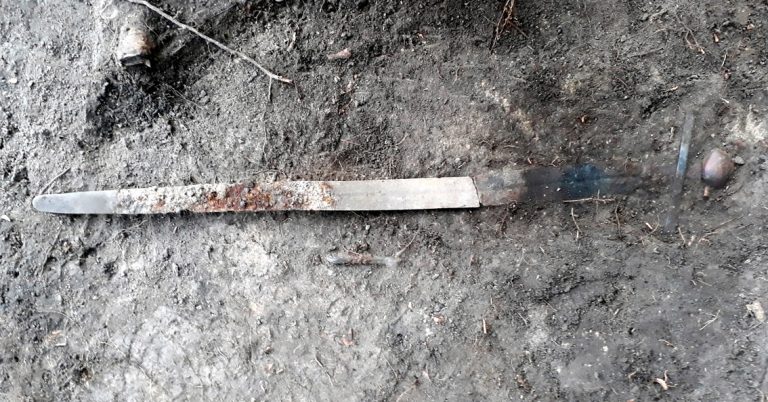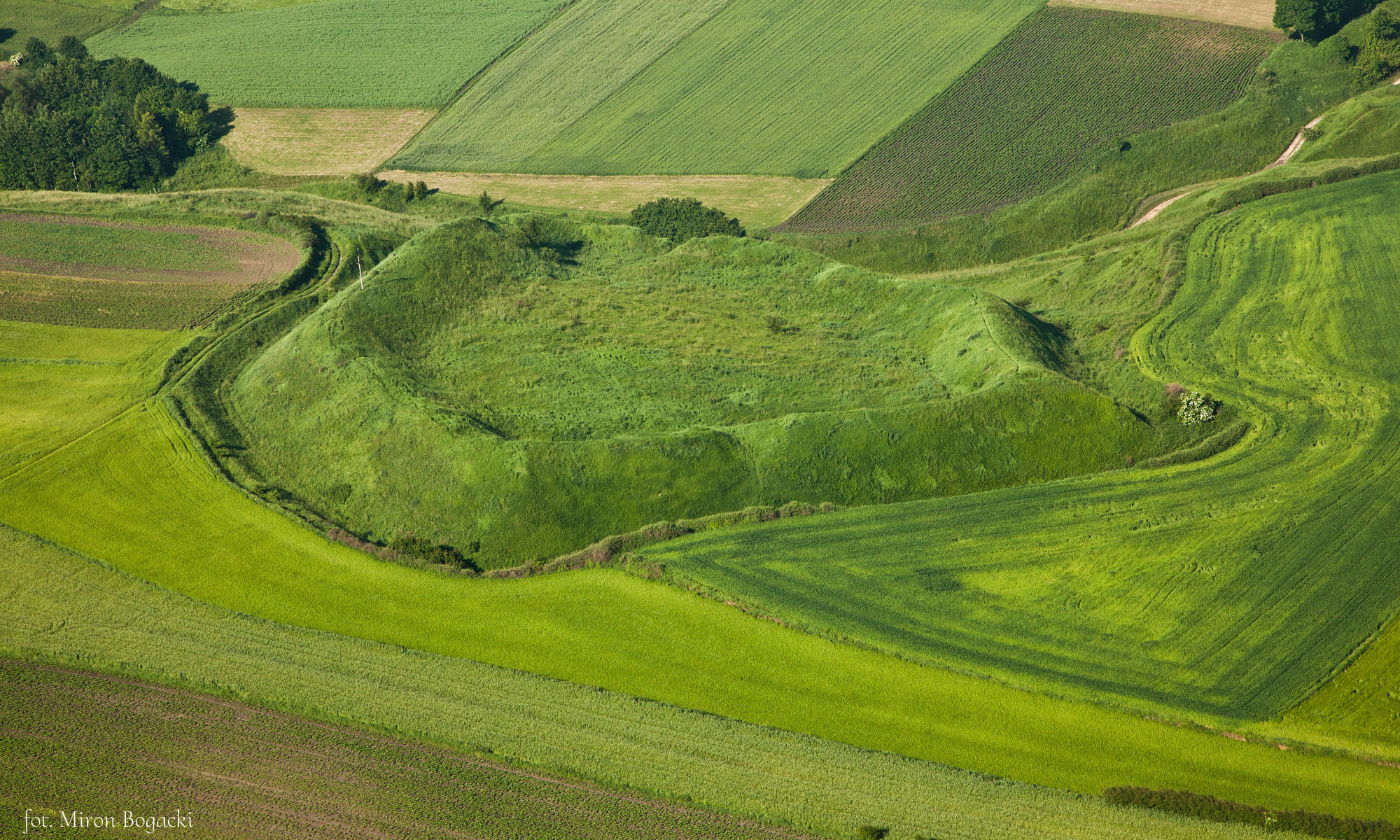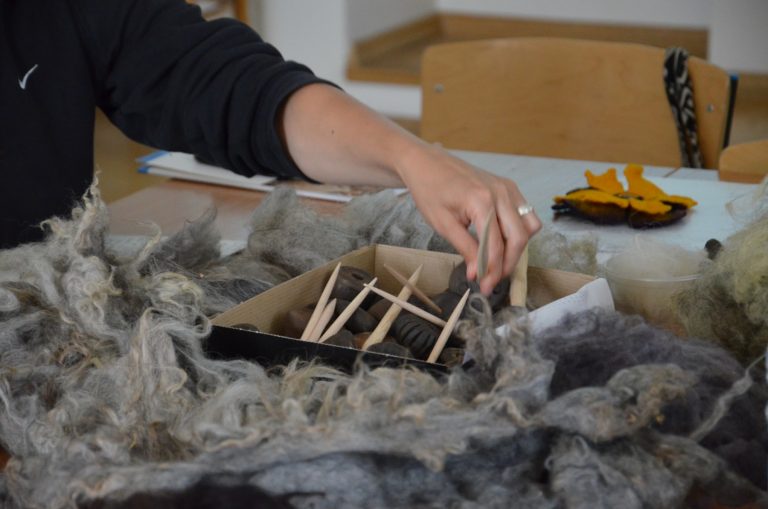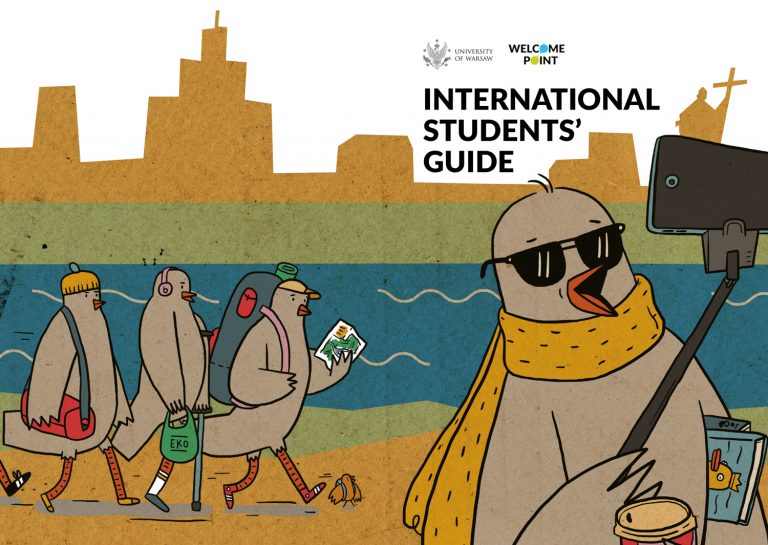direction:
Faculty of Archeology, 00-927 Warsaw, ul. Krakowskie Przedmieście 26/28, ‘Main School’, rooms: 0.36, 3.13, j 3.21, 3.21a.
head of the Department:
dr hab. Tomasz Nowakiewicz
faculty:
Dr. Karolina Blusiewicz
Dr. Dariusz Błaszczyk
Dr. Michał Starski
Marek Truszkowski, MA
Dr. Sławomir Wadyl
Dr. Mikalai Plavinski
Dr. Ludwika Jończyk
PhD Candidates:
Maciej Miścicki, MA
Marek Truszkowski, MA
retired employees:
Dr. Wojciech Wróblewski
prof. dr hab. Andrzej Buko
dr hab. Joanna Kalaga, prof. ucz.
prof. dr hab. Jerzy Kruppé
Martyna Milewska, MA

about the Department:
The Department was created from the fusion of two departments of the former Institute of Archaeology of the University of Warsaw: the Department of Early Medieval Archaeology and the Department of Late Medieval and Modern Era Archaeology. The areas of interest of the staff fall within the broad spectrum of problems relevant to these periods (i.e. early and late Middle Ages and modern times), along with their specificity and scientific workshop. The subject of research are various aspects of the material and spiritual culture of those times, reconstructed on the basis of archaeological sources, obtained, among others as a result of own field works, carried out mainly in the area of northern and north-eastern Poland (within the borders of early medieval Pomerania and the Prussian-Yotvingian lands and the medieval monastic state in Teutonic Prussia). They are complemented by various research projects undertaken in Mazovia, Podlachia and abroad. In-office studies, supported by a rich collection of archival artefacts stored at the Faculty of Archaeology of the University of Warsaw (e.g. from Chojnice, Ciechanów, Frombork, Gdańsk, Lębork, Rawa Mazowiecka, Sąsiadka, Wiślica), go far beyond the indicated geographic scope.
The main research topics of the Department’s employees focus on:
• the formation and disappearance of early medieval tribal structures in Prussia, Yotvingian lands and Pomerania, the material and spiritual culture of those communities inhabiting these lands and their relations with the inhabitants of neighbouring areas;
• comprehensive studies of various categories of finds representative of medieval towns and castle complexes (including ceramics, glass, wooden and leather finds);
• archaeological and architectural research;
• the use of isotope analyses in archaeology to determine the chronology of finds (radiocarbon dating), diet (stable isotopes of carbon, nitrogen and sulphur), origin and migration (stable isotopes of strontium and oxygen), as well as DNA analyses;
• archival archaeology and reconstruction of collections lost and dispersed as a result of World War II, from former museum collections from Polish lands (within the borders of the Second and Third Republic of Poland) and related to Poland.
In carrying out their research, the staff of the department cooperate with representatives of other scientific and museum centres in Poland, as well as with researchers from Belarus, Czechia, Lithuania, Latvia, Germany, Russia and Ukraine.
The sites excavated by the staff of the department:
-
Błonie, Masovian voivodeship, medieval chartered town (town plots; K. Blusiewicz)
-
Ciepłe, Pomeranian voivodeship, early medieval cemetery (S. Wadyl)
-
Czaszkowo (former Lake Nidajno), Warmian and Mazurian voivodeship, sacrificial place from late antiquity (in cooperation with the Institute of Archaeology and Ethnology, Polish Academy of Science; T. Nowakiewicz)
-
Człuchów, Pomeranian voivodeship, Teutonic and gubernator’s castle (M. Starski, K. Blusiewicz)
-
Debrzno, Pomeranian voivodeship, medieval town and defensive walls (M. Miścicki, M. Truszkowski)
-
Obłęże, Pomeranian voivodeship, early medieval barrow cemetery and stronghold (in cooperation with the Nicolaus Copernicus University in Toruń; S. Wadyl)
-
Pasym, Warmian and Mazurian voivodeship, early medieval stronghold (S. Wadyl)
-
Puck, Pomeranian voivodeship, medieval chartered town (town plots, church graveyard; M. Starski, K. Blusiewicz)
-
Skarszewy, Pomeranian voivodeship, medieval chartered town (town plots, fortifications; M. Starski, K. Blusiewicz)
-
Szczeberka (vicinity), Podlachia voivodeship, a complex of early medieval cemeteries on the Szczeberka River (in cooperation with the Terra Desolata Foundation; T. Nowakiewicz)
-
Shestovitsa, Chernihiv region, Ukraine, early medieval barrow cemetery (in cooperation with the Taras Shevchenko Chernihiv National Pedagogical University; D. Błaszczyk, V. Skorokhod)
grants carried out by department staff (projects in which staff performed leading functions)
Dr. Dariusz Błaszczyk
-
Locals or foreigners? Burials in chamber graves in Poland in the early Middle Ages (National Science Centre Fuga 2 grant), grant completed.
Maciej Miścicki, MSc
-
Barrels as a source for research on the provenance of wooden products from the territory of the state of the Teutonic Order. Production techniques – specialized analyzes – long-distance trade (National Science Centre Preludium 14 grant), grant in progress.
dr hab. Tomasz Nowakiewicz
-
Ostbalticum project (co-coordinator of the framework project of the Ministry of Culture, National Heritage and Sport), project in progress;
-
Conservation, compile, analysis and publication of finds from water deposits from Nidajno and former Herrn-See lakes (the Ministry of Culture, National Heritage and Sport/the National Institute of Cultural Heritage grant), grant completed;
-
Non-invasive prospection of the former cult place in Lake Nidajno in Masuria: extent, threats, paleoecological background (the Ministry of Culture, National Heritage and Sport/the National Institute of Cultural Heritage grant), grant completed.
Dr. Michał Starski
-
Puck’s material culture in the late Middle Ages. Archaeological portrait of a small town on the southern Baltic coast (National Science Centre Sonata 5 grant), grant completed;
-
The town’s plot of Długi Targ – Powroźnicza – Ogarna Streets in Gdańsk. Compile and publication of the results of archaeological research (the Ministry of Culture, National Heritage and Sport/the National Institute of Cultural Heritage grant), grant in progress.
Dr. Sławomir Wadyl
- Prussian lands in the early Middle Ages. Shaping a new settlement-territorial and social structure in the light of archaeological sources (National Science Centre Fuga 4 grant), grant completed;
- The place that created the power. A stronghold from the early Middle Ages in Pasym in the Masurian Lake District (the Ministry of Culture, National Heritage and Sport/the National Institute of Cultural Heritage grant), grant in progress.



